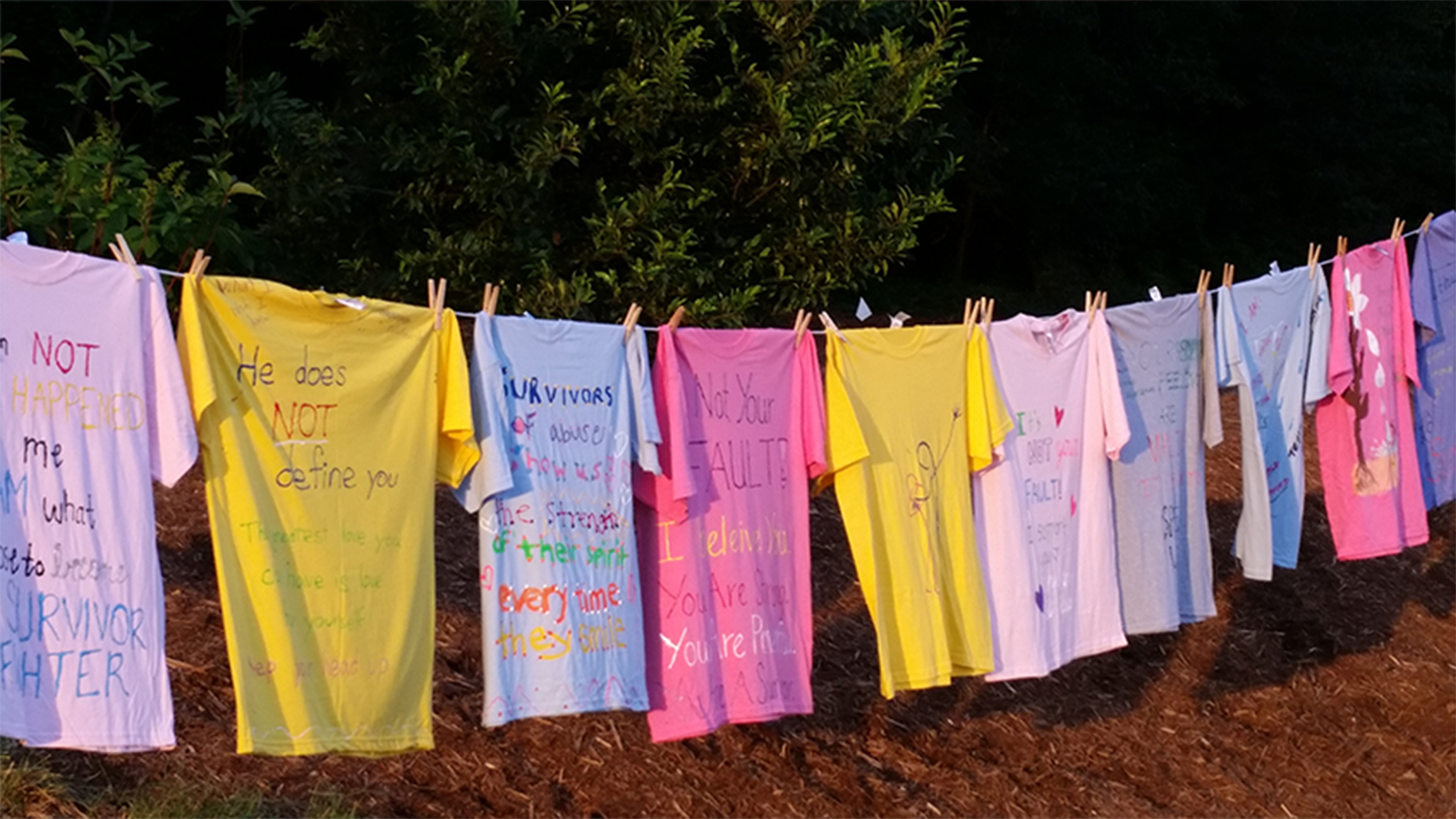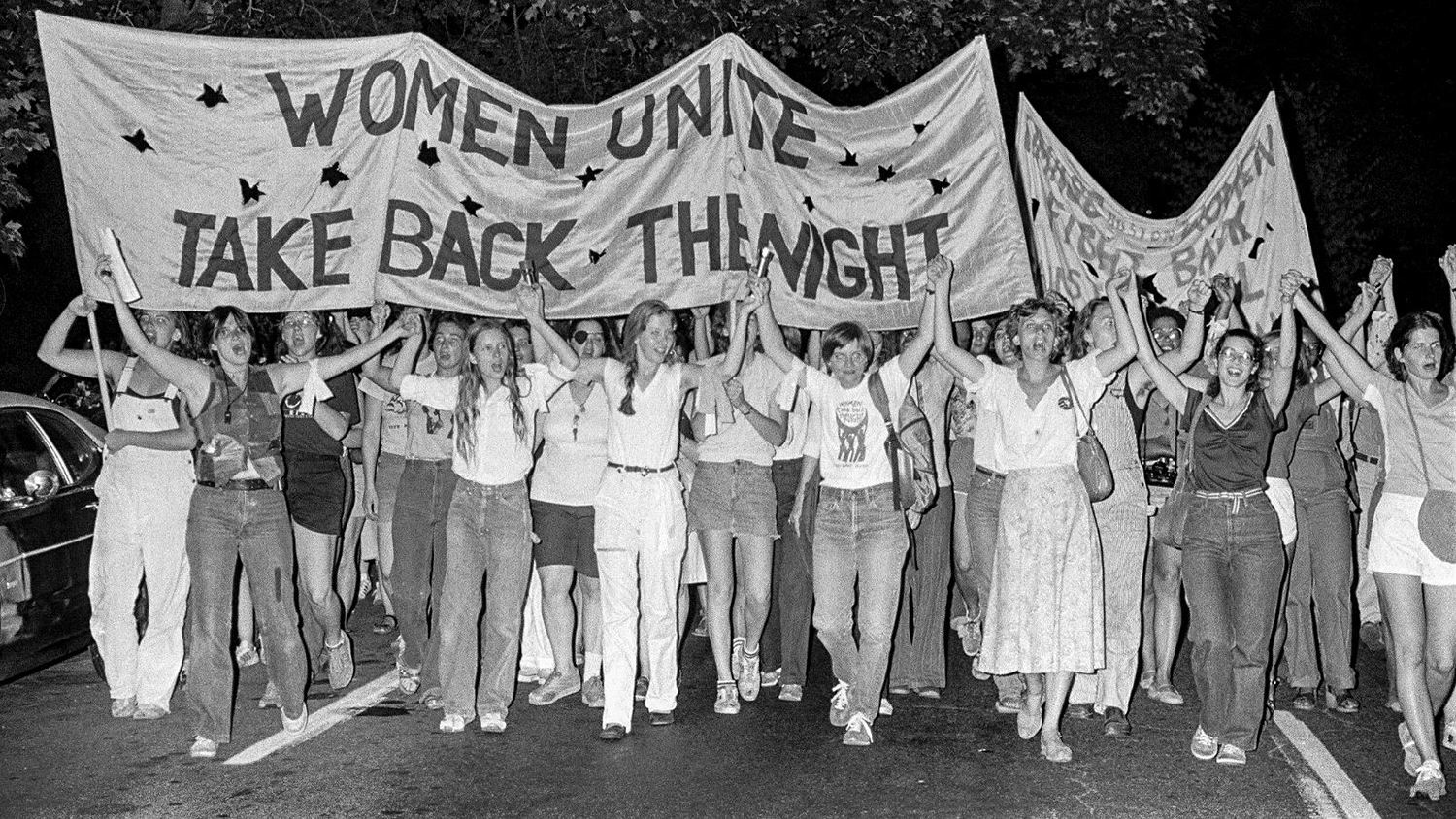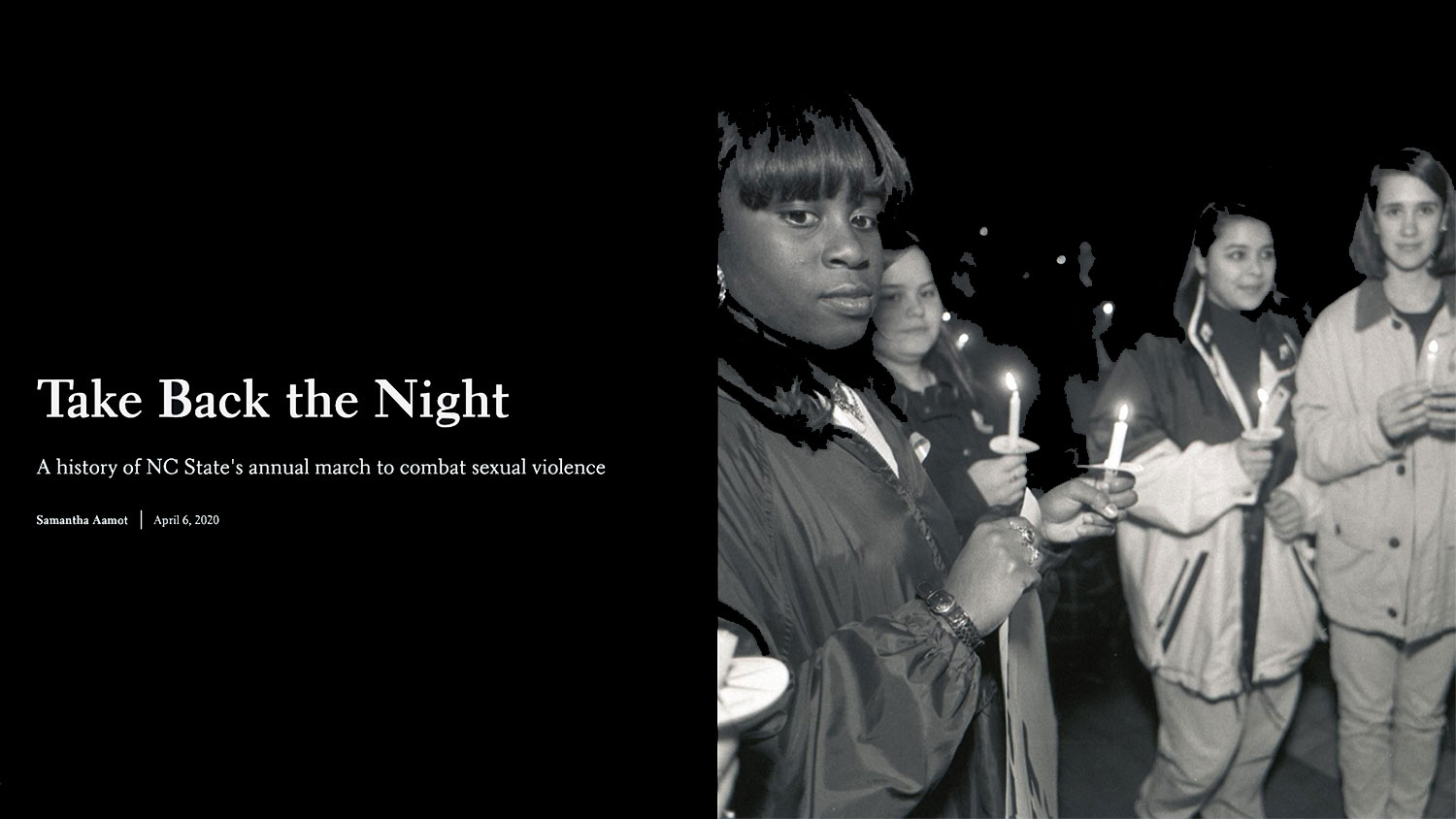
Sexual Assault Awareness Month
April is Sexual Assault Awareness Month
April is Sexual Assault Awareness Month (SAAM), a national program bringing attention to the issue of interpersonal violence. Every year, the Women’s Center creates community for survivors who might feel like they’re alone, who might think their communities don’t care, and who want to take political action to make the world a safer place for everyone. Join the NC State Women’s Center and our campus partners for a variety of engaging opportunities, workshops and events featuring leaders on our campus as we honor the strength, courage, and resiliency of NC State activists, advocates, and survivors and work together to create a stronger and safer campus community.
The Movement Peer Educators are a group of students who educate themselves and others about IPV, how it affects us and those we love, and who practice healthy relationships to change the world around them. Preventing sexual assault starts with us: join The Movement today!
Sexual assault is too common an experience: 1 in 4 women and 1 in 7 men will experience sexual assault in their lifetimes. Preventing sexual assault requires all of us: holding others and ourselves accountable, showing up for survivors in our personal lives and at political events, and being in solidarity with those whose experiences may be different than ours.
Take Back the Night at NC State
In the Library
Come check out any of these books from the Women’s Center library in 5210! You can browse our catalog here through the library website.

Anglo-Nigerian novelist Bernardine Evaristo won the Man Booker with this multi-point-of-view novel-in-verse, exploring the variety of experience of Black women and Black non-binary folks. She explores sexual violence, relationship abuse, internalized misogyny, poverty, adoption, and creativity. It is moving and hilarious, the poetic nature of the text making it a quick read despite its size. I’ve read it many times and it never fails to make me cry and laugh for her characters.
This beautiful collection of essays from women writers–queer, of color, straight, trans, you name it–explores desire and violence as they appear in women’s lives and asks what it means to reach for and carve out pleasure in a world that denies it to you. When women’s desire is so often treated as taboo (and erased under heteropatriarchal ideology about what and who women want), this collection is radical in its exploration of women’s sexuality. Contributions by Melissa Febos, Torrey Peters, Sonora Jha, and others
Inspired by Kandasamy’s abusive first marriage, When I Hit You is a stark portrait of a relationship that sharply descends into violence, including marital rape. While the narrator is being terrorized by her husband, she has to develop a rich internal world, get back in touch with the desires that used to sustain her, until she can finally strike back and escape. Kandasamy is a fiercely political novelist and poet, using language to protest misogyny, caste, and the destruction of language by domination in India.
Thoms’ genre-bending fictional memoir includes poetry, fiction, plays, and beautiful descriptions of transgirl solidarity. Their work is also deeply attentive to the specific sexual violence faced by trans women (from police, from doctors, among others) while also trying to find joy and new ways of being together that move us toward forgiveness and love, away from violence and cruelty. A joyful read that always makes me cry.
Support is Available
** If you or someone you know is experiencing relationship violence, sexual violence, stalking or any other form of interpersonal violence and are in need of advocacy services, the NC State Women’s Center has trained advocates available to offer crisis intervention, emotional support, resources, and referrals. Students can contact the 24/7 Sexual Assault Helpline at 919-515-4444 or ncsuadvocate@ncsu.edu to be connected with an advocate.
Advocacy services through the NC State Women’s Center are available for all students inclusive of all gender identities and sexual orientations.
For more information on advocacy services, please visit go.ncsu.edu/supportsurvivors. You may also visit go.ncsu.edu/safe for additional information on resources and reporting options.


